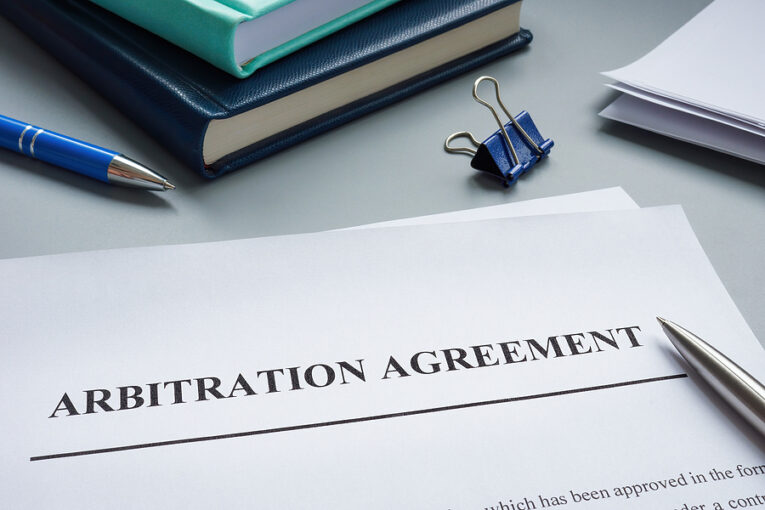Business deals can go sour. Partnerships can fracture. Deals and ventures that once seemed destined for greatness can unexpectedly stumble. When business relationships run into conflict, litigation often becomes the default resolution method. Lawsuits may seem like the inevitable choice, but are they the optimal path forward?
Key Takeaways
- Business disputes can have significant non-monetary costs, including damage to reputation and strained relationships.
- Alternative dispute resolution (ADR) methods like mediation and arbitration offer advantages such as cost savings, confidentiality, and faster resolution.
- Mediation is a voluntary, collaborative, and cost-effective process that can preserve relationships and should be the first step in resolving many business disputes.
- Effective ADR provisions in contracts are essential for successful mediation and arbitration, including specifying arbitrator qualifications and procedural rules.
- Planned Early Dispute Resolution (PEDR) and training lawyers in non-litigious approaches are emerging strategies for smarter dispute resolution in business.
Alternative dispute resolution (ADR) mechanisms like mediation and arbitration promise less adversarial, more tailored solutions for resolving business disputes. Avoiding courtroom battles benefits not just the companies involved but the business ecosystem as a whole.
This guide examines how the strategic use of mediation and arbitration can optimize business dispute resolution. You’ll learn:
- The unique benefits of mediation and arbitration
- How to design ADR provisions for maximum effectiveness
- Best practices for controlling arbitration costs and delays
- The future of business dispute resolution
Let’s dive in and unpack how prudent use of ADR can lead to swifter, less destructive conflict resolution.
Why Business Disputes Matter
Business disputes come in all shapes and sizes.
- Breach of contract claims
- Partnership and shareholder disputes
- Intellectual property conflicts
- Employment issues
- Professional liability claims
- Real estate and property disputes
And more. Unlike personal injury or family law cases, business disputes impact entire companies, business relationships, and industries. The ripple effects of prolonged litigation can be severe.
- Decreased productivity and focus while the dispute is ongoing
- Public spats are creating reputational damage.
- Loss of consumer and stakeholder trust
- Wasted resources that could be invested elsewhere
- Stalled innovation and progress
Costs compound quickly in litigation, too. Average commercial litigation costs for suits over $1 million total around $150,000 from start to finish. Complex cases can soar into the millions in legal fees alone.
But the non-monetary costs might be even greater:
- Derailed business partnerships and deals
- Toxic relationships are poisoning the well for future collaborations.
- Industry uncertainty from public legal spats
- Diversion of focus from innovation and growth
The Promise of ADR
Alternative dispute resolution offers a compelling way forward. ADR refers to conflict resolution outside of formal court litigation. It includes:
- Negotiation between the parties
- Mediation with a neutral third-party facilitator
- Arbitration in a private tribunal
ADR delivers benefits like:
- Confidential proceedings
- Cost and time savings
- Control over the process and outcome
- Expert decision-makers tailored to the dispute
- Relationship preservation
For international business disputes, ADR is especially advantageous, avoiding unpredictable foreign courts.
Skilled use of ADR can redirect conflict away from value-destroying courtroom battles into creative, collaborative solutions. Business disputes demand a business-centric resolution tailored to commercial needs over legal precedent.
The key lies in understanding which ADR methods work best for which disputes. Let’s analyze the strategic use of mediation and arbitration in turn.
Mediation: An Underutilized Option
Mediation brings disputing parties together with an impartial, expert mediator. Through private and confidential discussion, mediators help parties communicate, understand each other’s perspective, and craft win-win solutions.
Here are some major upsides to mediation:
- Voluntary: Parties aren’t forced into any resolution, preserving autonomy.
- Confidential: Unlike litigation records, mediation proceedings are private.
- Collaborative: Mediators facilitate cooperation, not competition.
- Cost-effective: Much less expensive than litigation or arbitration
- Quick: Can typically resolve disputes in weeks or months instead of years.
- Relationship-preserving: allows parties to vent and address issues, then move forward constructively.
Mediators also consider business concerns that litigation ignores, like industry practices, cultural context, and commercial objectives.
For many business disputes, mediation should be the first ADR method attempted before escalating to arbitration or litigation. Some cases particularly suited to mediation include:
- Partnership disputes between founders, owners, and stakeholders
- Intellectual property conflicts
- Employment issues
- Professional liability claims
- Insurance coverage disputes
Including mediation provisions as the first dispute-resolution step in commercial contracts is wise.
Selecting an Effective Mediator
Not all mediators are created equal. Here are the keys to identifying a strong mediator:
- Subject matter expertise: experience in the specific industry and issues involved
- Neutrality: No conflicts of interest with either party
- Listening skills: Let each party share their unfiltered perspective.
- Creativity: Brainstorms creative solutions suited to parties’ needs and interests.
- Tenacity: Relentlessly pursues resolution even when talks get difficult.
Look for a mediator with robust experience facilitating business disputes similar to yours. Industry expertise is invaluable.
Pro tip: If a dispute seems headed to arbitration after mediation, consider using the mediator as the arbitrator. The insight gained during mediation can streamline arbitration.
Promoting a Mediation-First Culture
Many businesses underutilize mediation or use it as a perfunctory box-checking step required before arbitration.
To promote mediation, organizations should:
- Train management and legal teams on mediation benefits and negotiation dynamics.
- Draft clear mediation provisions in commercial contracts, outlining process details like mediator selection.
- Set an expectation that mediation will be pursued promptly for disputes.
- Reward teams for resolving disputes via mediation before escalating.
Positioning mediation as the favored first step signals a commitment to swifter, less disruptive dispute resolution.
Arbitration: Promises and Pitfalls
Arbitration involves empowered, neutral arbitrators conducting private, confidential proceedings and rendering binding decisions. It avoids unpredictable juries and drawn-out litigation.
The upsides of arbitration include:
- Privacy: a confidential process unlike public litigation
- Expert decision-makers: Arbitrators can be chosen for subject-matter expertise.
- Flexibility: Parties shape everything from rules of procedure to the arbitration site.
- Global enforceability: Arbitration awards are more enforceable globally than foreign court judgments.
- Cost and time savings: Avoids litigation discovery and courtroom delays
However, some frequent critiques of arbitration deserve consideration:
- “Litigation-like” delays and costs: Overuse of discovery and motion practice drags out arbitration
- Limited appeals: Lack of robust appellate review incentivizes arbitrator compromise.
- Unpredictable decisions: Awards don’t always strictly follow the law.
- Repeat player bias: potential favoring of frequent corporate arbitrator selectors
Many of these drawbacks stem from arbitration proceedings mimicking litigation. But with deliberate design choices, arbitration can largely avoid these pitfalls.
Controlling Costs and Delays
Excessive discovery and motion practices remain the top sources of runaway arbitration costs and delays. Here are some keys to keeping arbitration on track:
- Limit discovery: narrowly tailor document production and depositions to critical needs.
- Expedite motion practice: short page limits, no discovery motions, truncated schedules
- Consolidate hearings: Block together evidentiary hearings into concentrated sequences.
- Enforce deadlines: Use time limits for filings and hearings to keep momentum
- Pick expert arbitrators: those experienced with streamlined proceedings
Procedural rules that strictly cap discovery demands and motion practice are essential. Arbitrator discretion over procedures also allows customization based on the dispute’s needs.
Designing Optimal ADR Provisions
The secrets to successful mediation and arbitration largely lie in the initial contractual provisions governing the processes. Here are some best practices for crafting ADR clauses:
Arbitration Clauses
Every arbitration clause should cover:
- A clear agreement to arbitrate
- Scope of disputes that will be arbitrated
- Procedural rules that will apply
- Number of arbitrators
- How the arbitrators will be chosen
- Location/seat of arbitration
- Governing substantive law
Other advisable provisions include:
- Mediation as a prerequisite to arbitration
- Discovery limitations like caps on requests or depositions
- Restrictions on dispositive motions
- Expedited hearing timelines
- Allocation of fees and costs: loser pays, splits evenly, etc.
Drafting with Precision
Seemingly minor wording differences can profoundly shape proceedings. For example:
- “A single arbitrator” vs. “one or more arbitrators”: Limits panel size
- “No discovery motions” vs. “limited discovery motions”: Closes loopholes
- “Must complete hearings within 6 months” vs. “should aim to complete…”: Adds accountability
Err on the side of being highly specific over leaving excessive discretion.
Selecting Expert Neutrals
Many arbitrators are former judges. But subject matter experts may be preferable for business disputes involving complex technical or scientific issues.
Where relevant expertise exists, consider:
- Specifying arbitrator qualifications, like requiring industry experience
- Listing preferred arbitrators by name who possess the desired expertise
- Using neutral appointment services that allow screening for specific skills and backgrounds
Cast a wide net for arbitrators possessing both dispute resolution acumen and expertise relevant to the issues.
The Future of Business Dispute Resolution
Evolving best practices for smarter dispute resolution present a brighter way forward. Two emerging approaches show particular promise.
Planned Early Dispute Resolution (PEDR)
PEDR means proactively planning for dispute resolution early in deal negotiations and contracts. Too often, ADR considerations occur as an afterthought, leaving room for trouble.
PEDR entails:
- Discussing preferred dispute resolution during deal negotiations
- Including detailed, binding ADR provisions in contracts
- Selecting preferred neutrals in advance
Proactively planning conditions expectations that any disputes will be resolved swiftly and privately.
Training Lawyers in Non-Litigious Approaches
Outside counsel’s knee-jerk litigation reflexes often derail efficient ADR. To expand access to ADR, lawyers need exposure to interest-based negotiation and non-adversarial conflict resolution.
Potential solutions include:
- Law school ADR clinics: Provide hands-on ADR training.
- Corporate negotiation competitions: reward flexibility and creative problem-solving
- Subsidized mediation and arbitration rotations: Give lawyers firsthand ADR experience.
- Business dispute resolution certificates: formalize and recognize ADR as a specialized skillset.
Equipping more lawyers with ADR capabilities will drive wider adoption.
Let’s resolve smarter.
Maintaining positive business relationships and reputations amidst conflict represents one of the highest callings in commerce. Destructive legal spats that drain resources serve no one’s long-term interests.
With deliberate ADR planning, disputes become opportunities to strengthen partnerships and demonstrate values. Companies that implement wise dispute resolution reap the rewards for years through new levels of trust and goodwill.
It’s time to change the corporate dispute resolution culture. Don’t let nitpicking lawyers addicted to courtroom drama hijack your business interests. Embrace interest-based negotiation. Invest in preventative mediation. Design arbitration procedures to deliver efficient outcomes aligned with business needs.
Most importantly, plan for disputes proactively when structuring deals to bake in expedited resolution processes.





